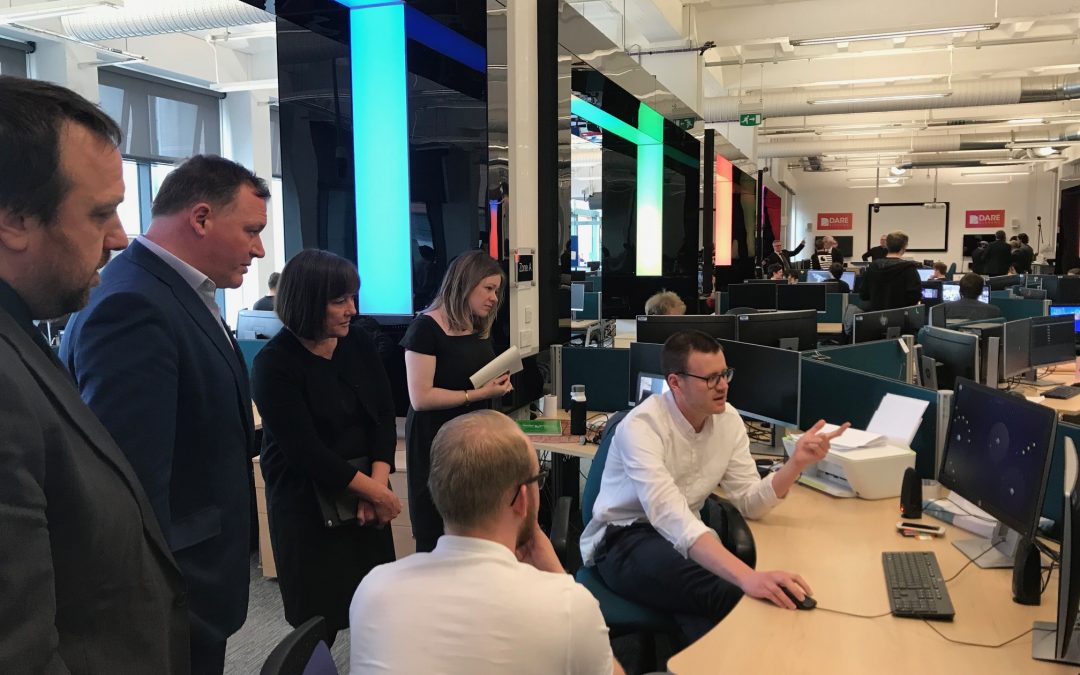This guest blog was kindly written for GuildHE by Professor Nigel Seaton, Vice-Chancellor, Abertay University. If you would like to contribute to GuildHE’s blog, please contact info@guildhe.ac.uk.
Last week at Abertay University, we hosted a two-day visit of the UK Parliament’s Digital, Culture, Media and Sport Committee for a packed programme demonstrating the variety of digital projects, skills and research at the University. The Committee had approached us to arrange the visit as they were keen to learn about our work in computer games, and in particular our collaboration with industry, and to use the University as a base for a public meeting of the Committee.
On the first day, Committee Chair Damian Collins MP, Paul Farrelly MP, Jo Stevens MP, and Brendan O’Hara MP, were treated to a tour of the University’s facilities before enjoying a showcase of various student games projects, and talks on recent research and knowledge-exchange activities, including the AHRC-funded InGAME collaboration, a project we are leading with our partners at the University of St. Andrews and the University of Dundee, to support the development of computer games companies.
The following day, the Committee took evidence from local games companies at an open session on ‘Immersive and Addictive’ technologies. Witnesses included Colin Anderson, Commercial Director of Earthbound Games, Keeley Bunting, Senior Designer at Outplay, Tony Gowland, Founder of Ant Workshop, and Timea Tabori, an Abertay graduate now working as the National Coordinator for Women in Games in Scotland, and an Engine Programmer at Rockstar Games.
The wide range of topics put to the panel included the benefits of UK tax breaks and funding schemes in supporting start-up games companies, the role of women in games and how to tackle the current gender imbalances across the sector, the currently unregulated ‘free to play’ business models, and the effect that Brexit is expected to have on the industry.
For us at Abertay the visit of the Digital, Culture, Media and Sport Committee was a great opportunity to show off our work in this area, and more generally to demonstrate what a small, modern university can deliver to an important industrial sector by delivering a talented, industry-ready workforce, with curricula developed hand-in-hand with employers. I was very pleased to see that the value of this intimate relationship between our University and the industry it supports was recognised several times during the Committee’s public meeting.
Professor Nigel Seaton
Vice-Chancellor, Abertay University and GuildHE Executive Member

